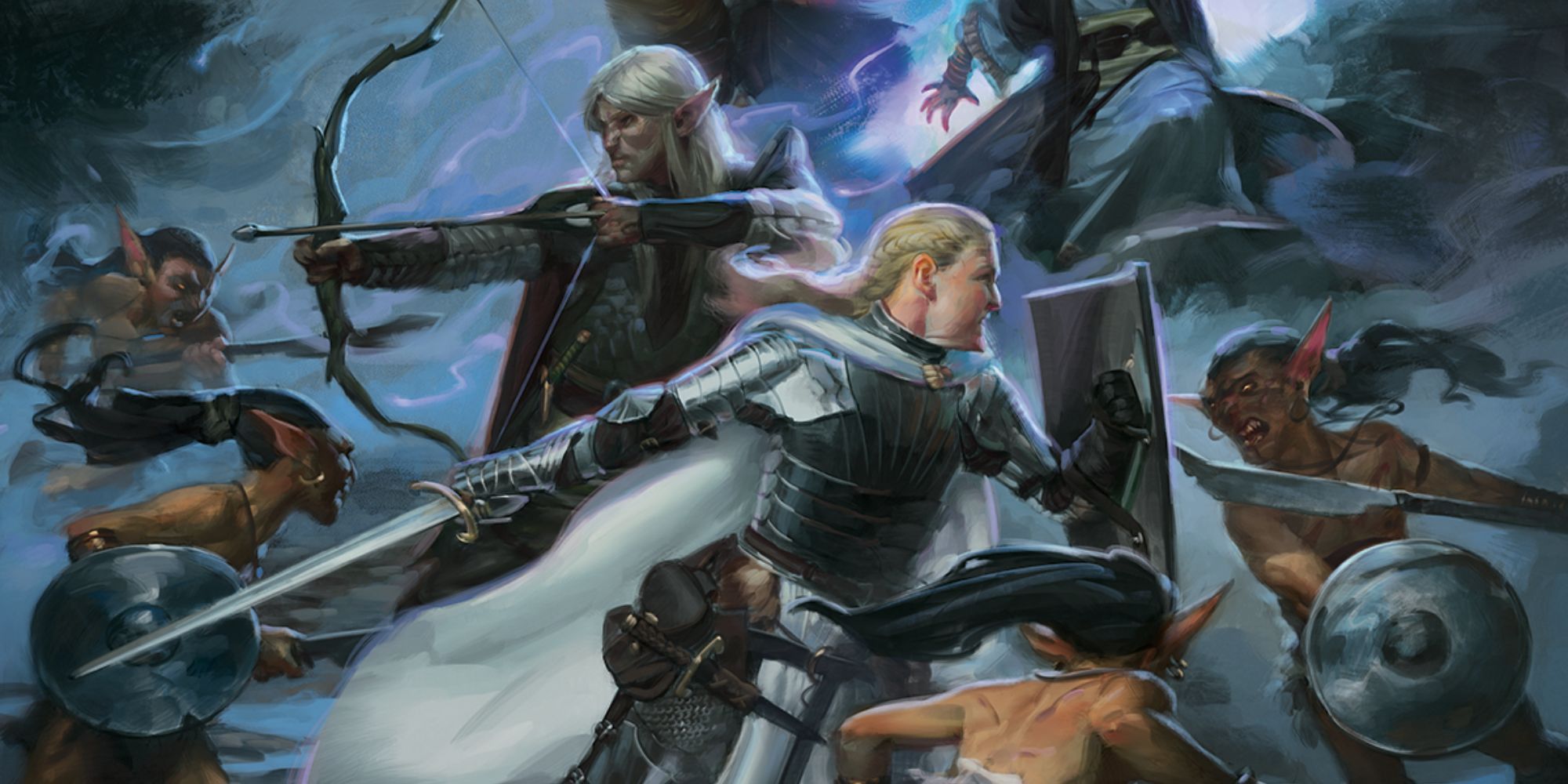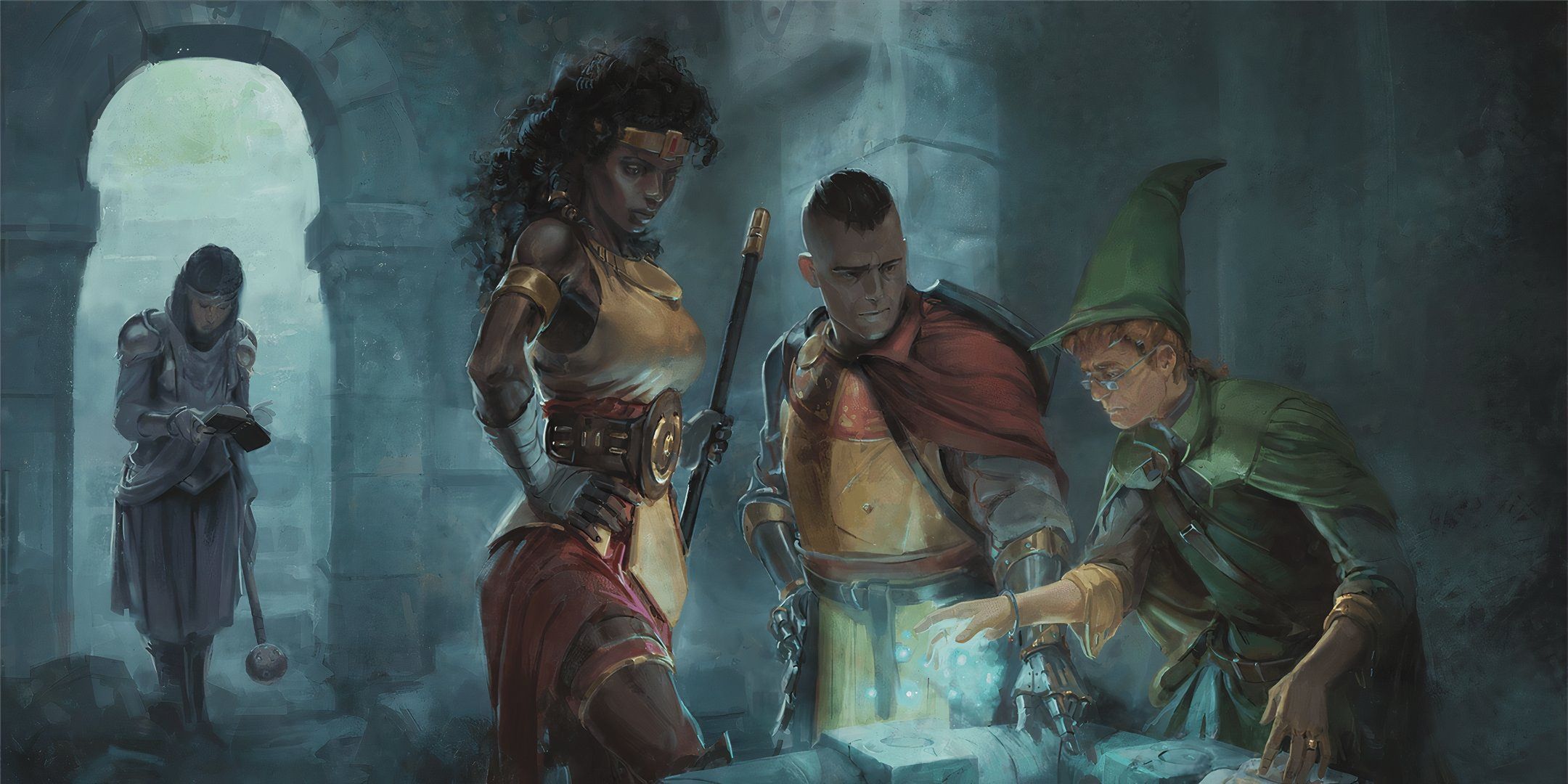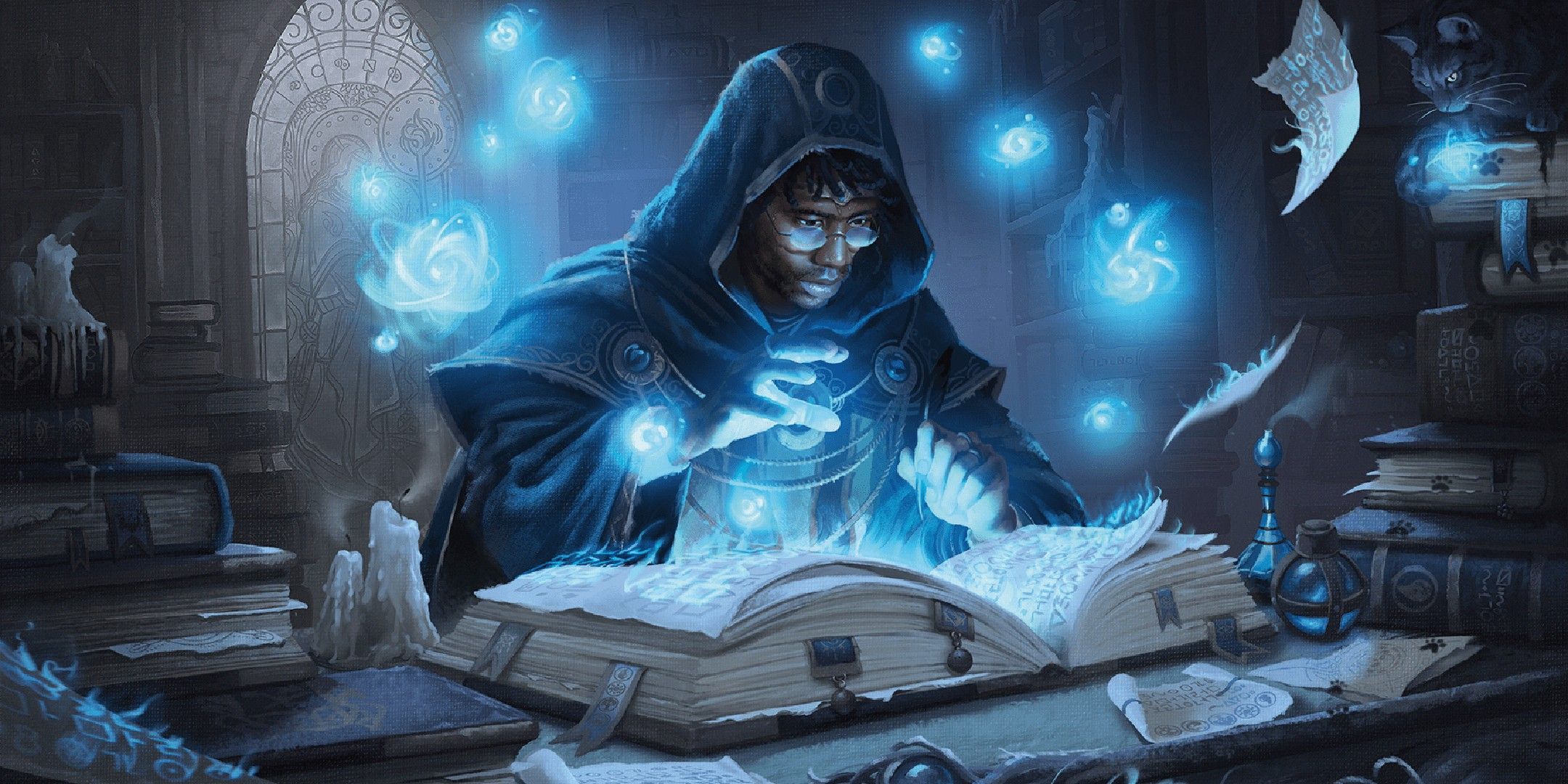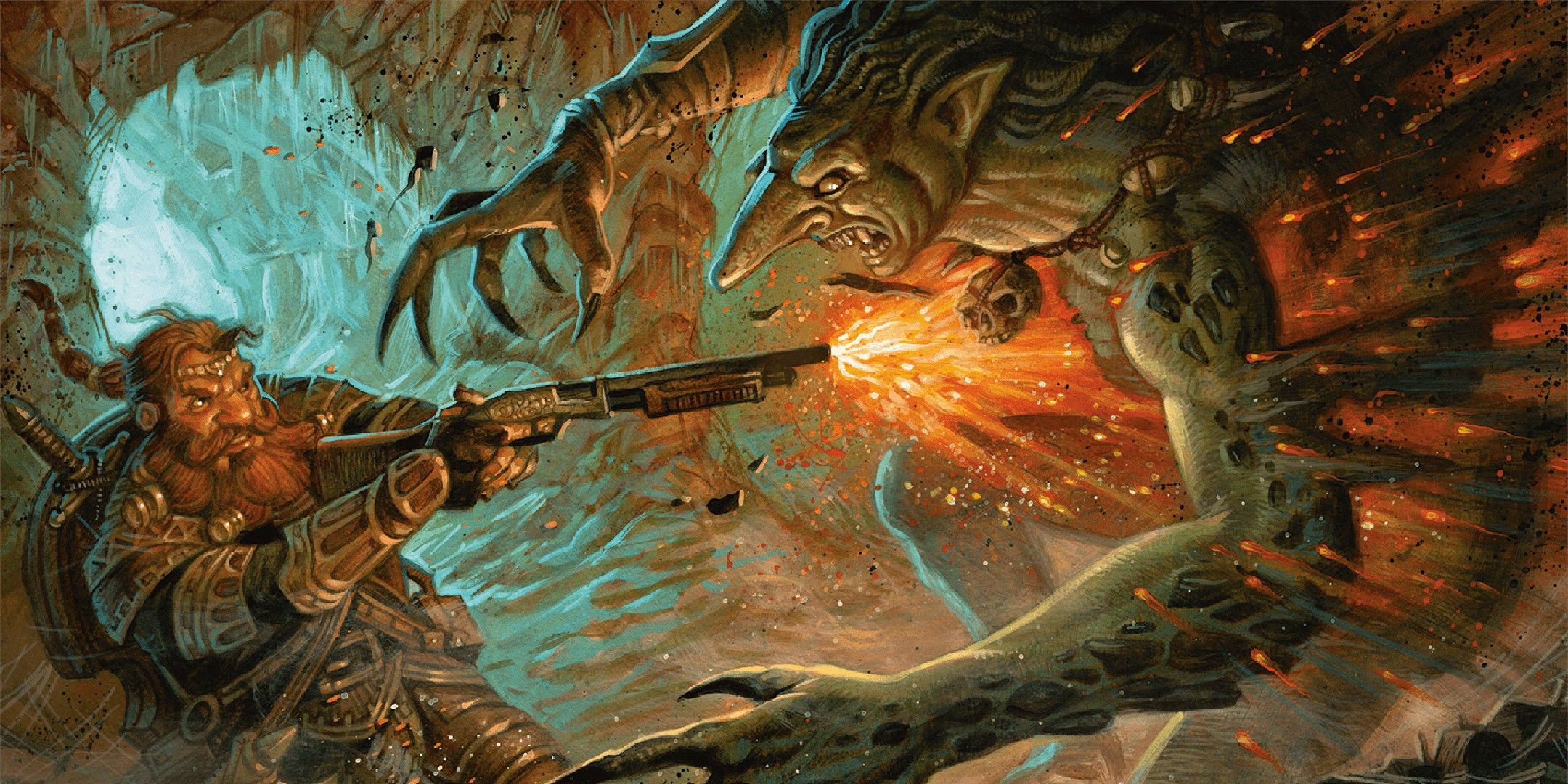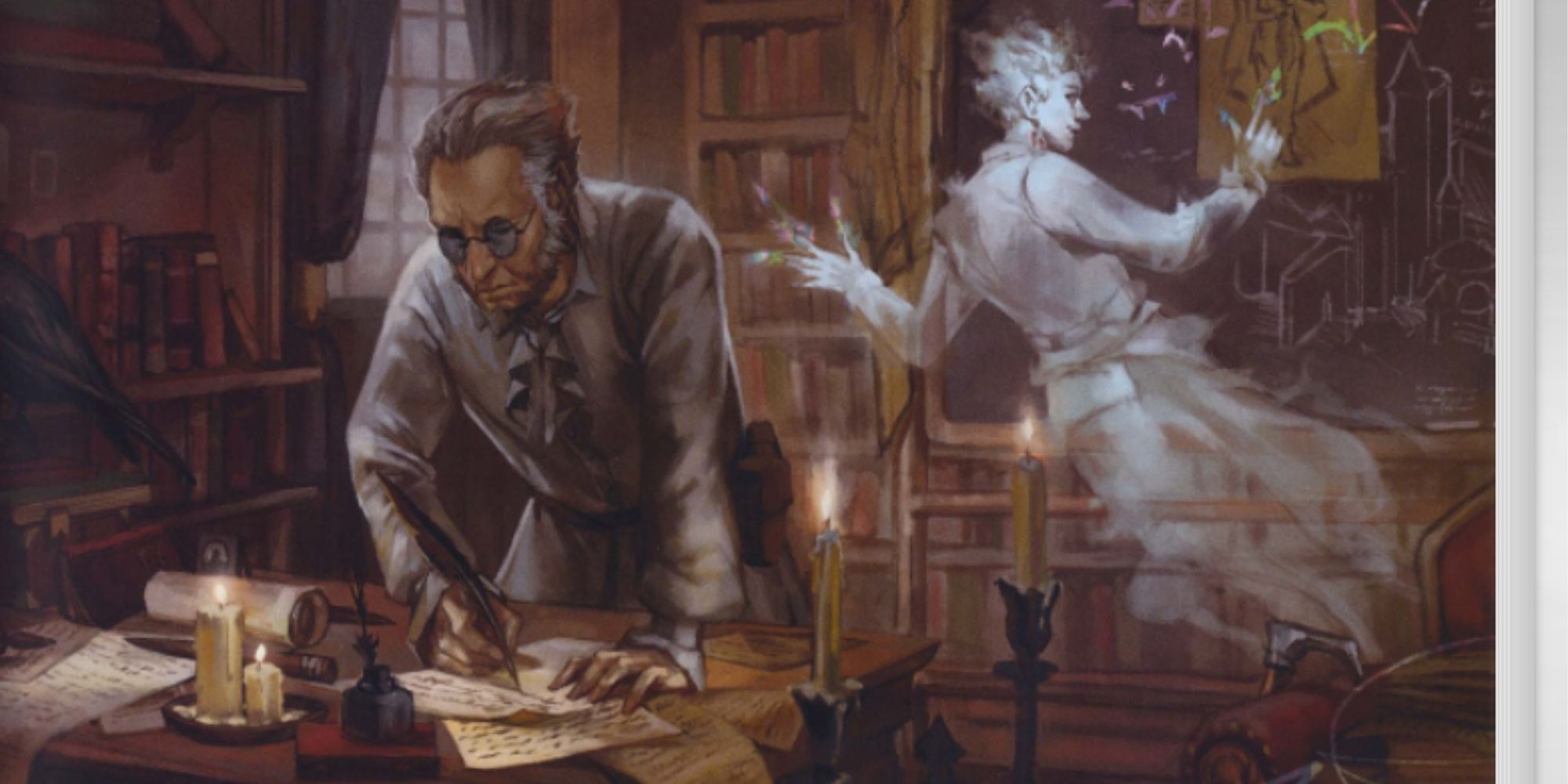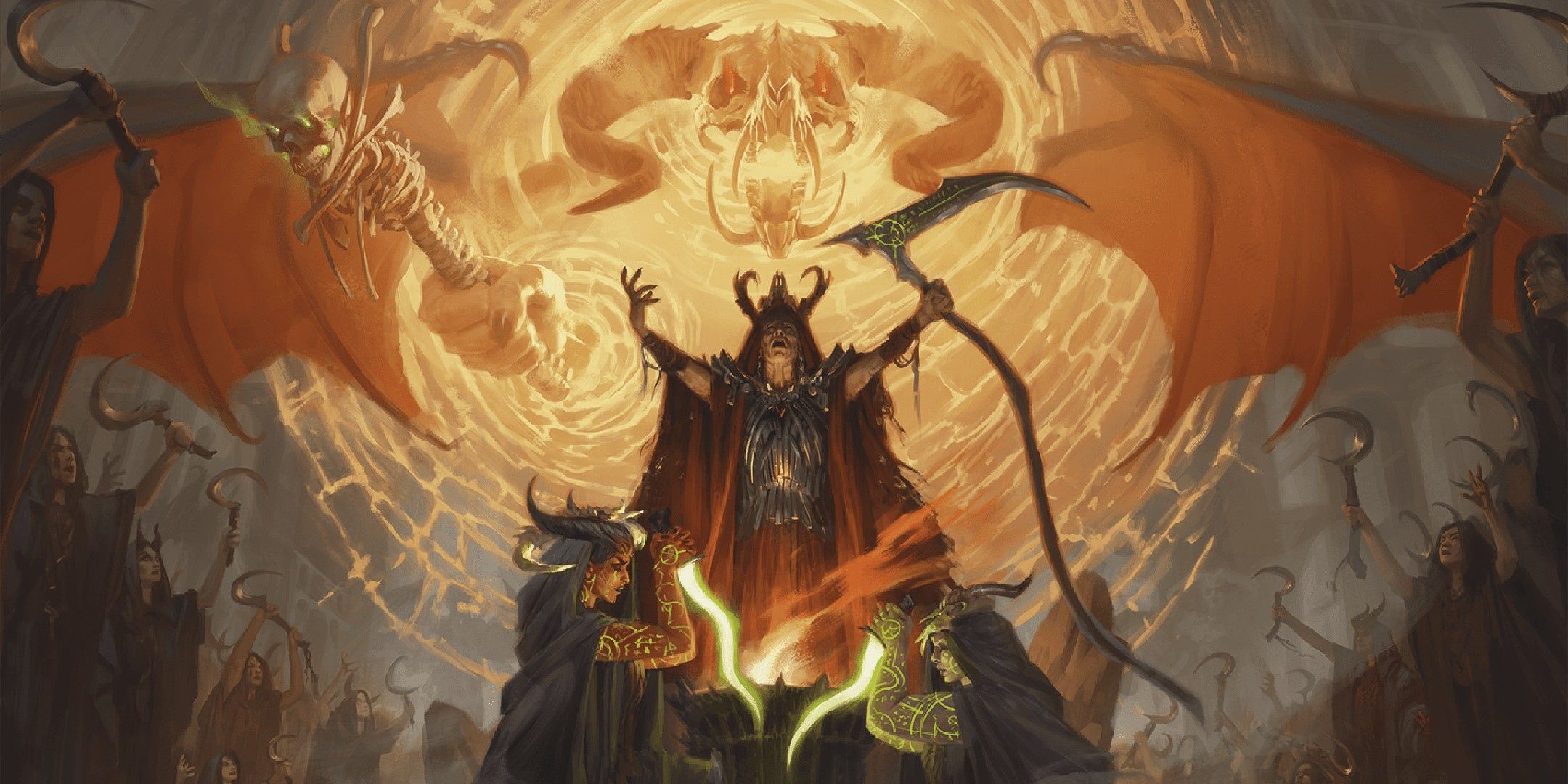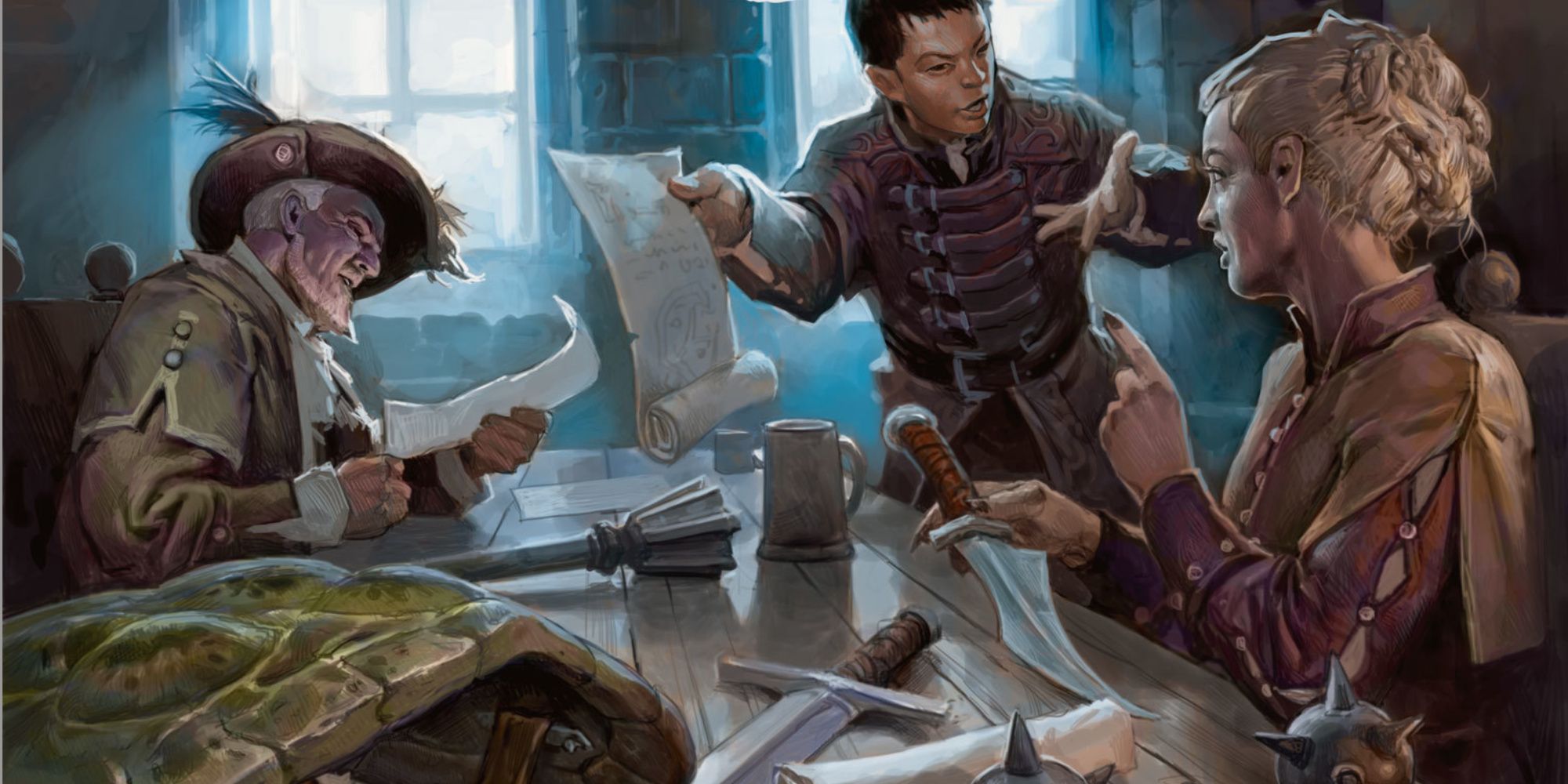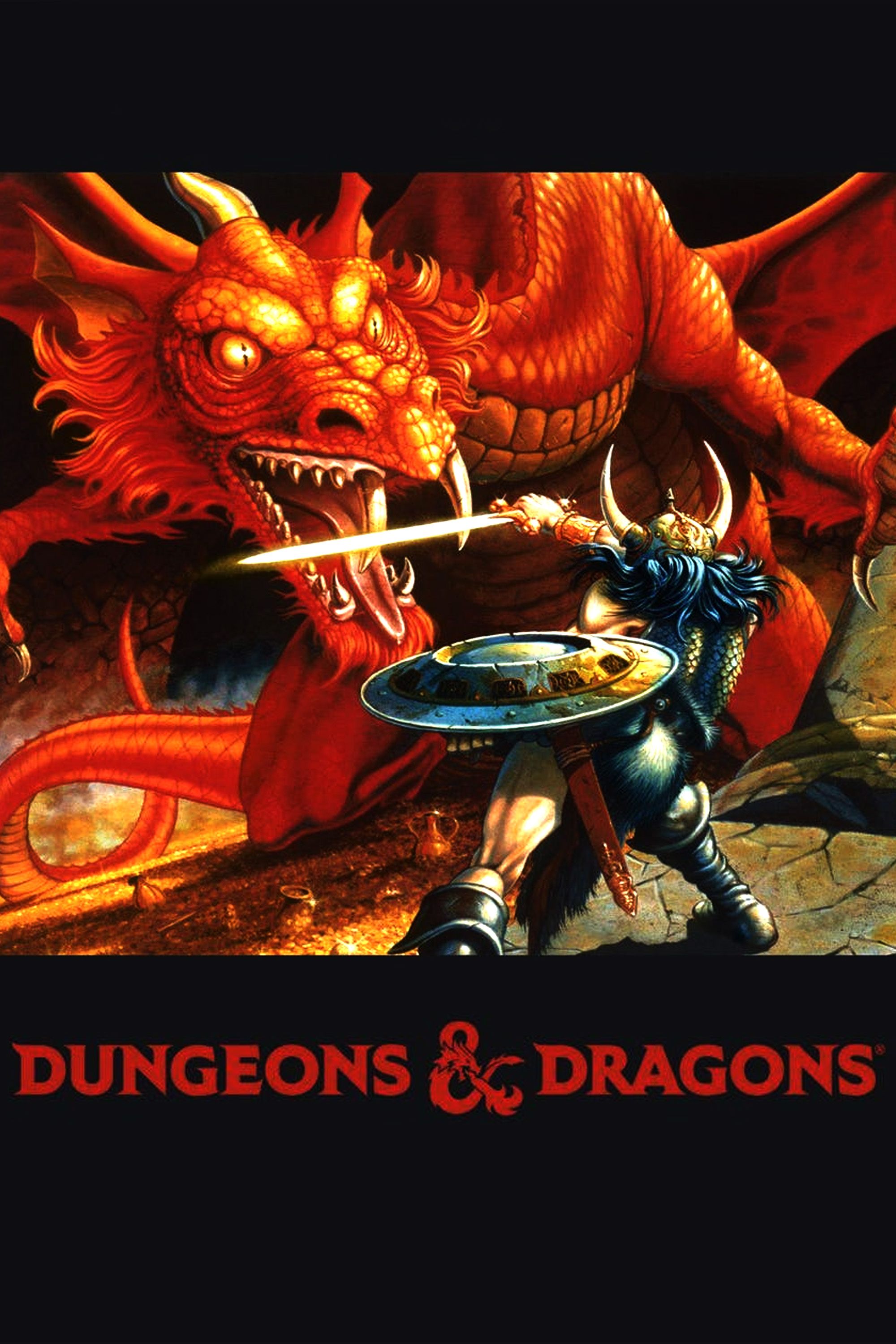The dungeon Master’s Guide for Dangens and Dragon not only provides you tools tools to build your world, and it includes the unique principles of chase and item crypting, but also useful points for running the game. These indicators are practical and important to ensure that the game runs easily.
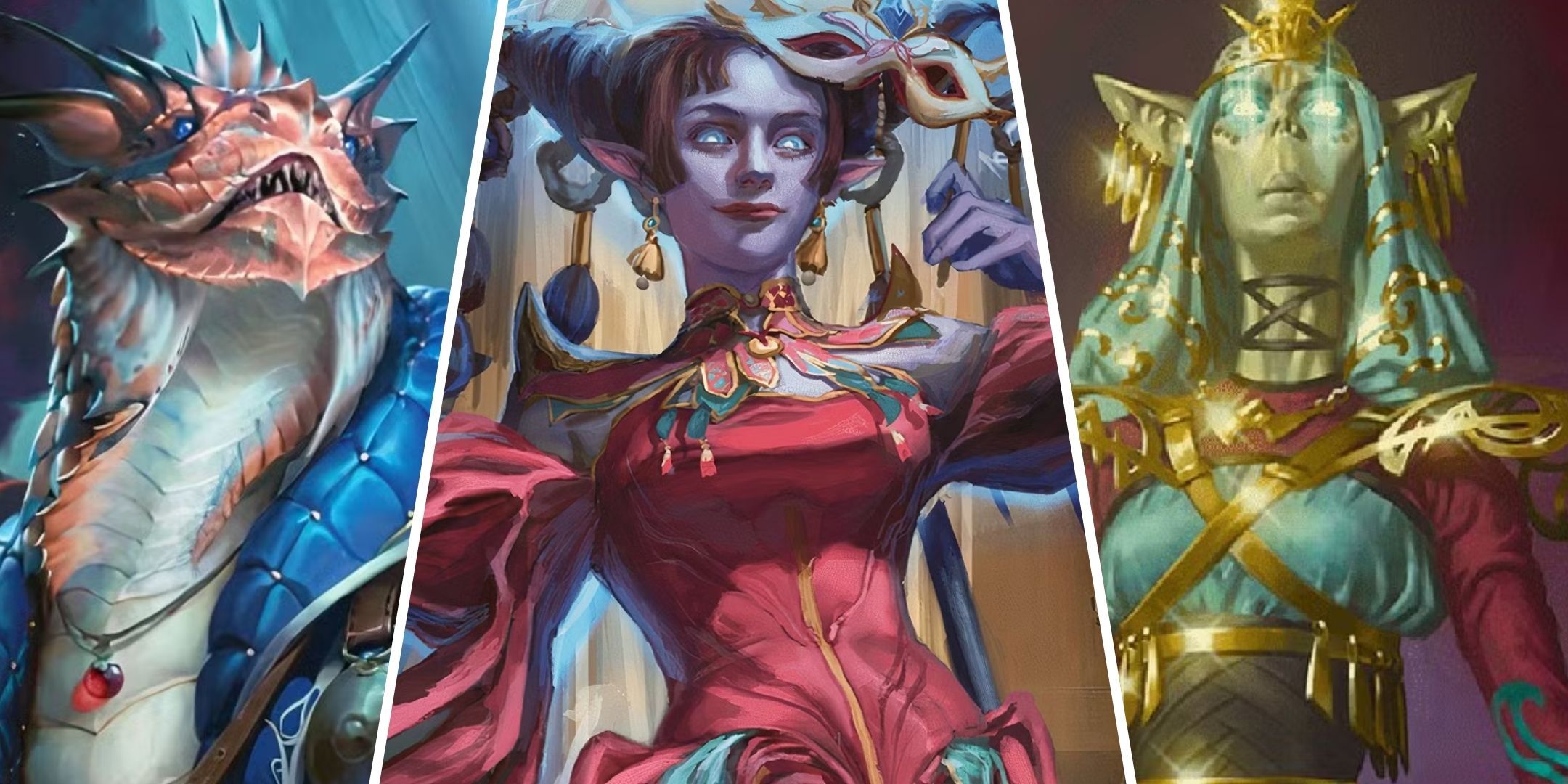
Relevant
Danjons and Dragon: 10 best species for magicians
If you are playing as a magician in DND, it is the best species to choose.
Although not every tip will be applied to every DM or table, they include some major problems to avoid or resolve the table, which is mostly a table and the first time DMS. Although the book contains a large number of useful indicators and information, some are more important to learn first.
10
This is not a competition
A common misconception between the DMS and the players is the argument that both sides are in competition, both are trying to ‘win’ the game. This soul is not only against the D&D point of view, but it can set some unhealthy views on the table.
It is important to remember, as a DM, you have all the power. It is easy to add 12d10 additional damage to any attack or to drop a couple zero at the end of the health of the monster. As a game controller, you should cooperate with other players to make a memorable story or a charming game that is shared by everyone.
9
One hour guideline principle
To schedule a game with the sacrifice of their time hours with each one, a DM job is to make sure that time is well spent. One way to ensure that the sessions are not contested is to follow the guidelines of an hour for what can happen in an hour of the gameplay.
The DMG recommends three events, such as communicating with the NPC, searching for a room or cave, fighting short combat, or resolving a puzzle. Although these examples may be very specific to every possible event, you should guide players to try to fill multiple tasks that prevent the game from moving very slowly.
In some competitions, many types of events can be successful simultaneously, and others may be important or interesting to abandon this principle.
8
Prepare sessions in three hours or less time
Perhaps the most timely demand for a DMS job outside the session is preparing for them. Since hours can easily cause DM burnout at preparation hours, try to plan you in just three hours or less.
Depending on how much time you give yourself, just keep a tough note on the fact that the players are able to communicate immediately. If you have extra time, design “possible” and “unexpected” competitions, while there is always an uncontrolled list to explain it.
7
Let the players lead the competition
A skill that is learned best during the actual game can be easy to entertain in running an encounter, but it can be difficult to master it. One of the best points from the DMG regarding running competitions is to let the players talk. You should not make a session note on a specific NPC dialogue and never do what your players do.
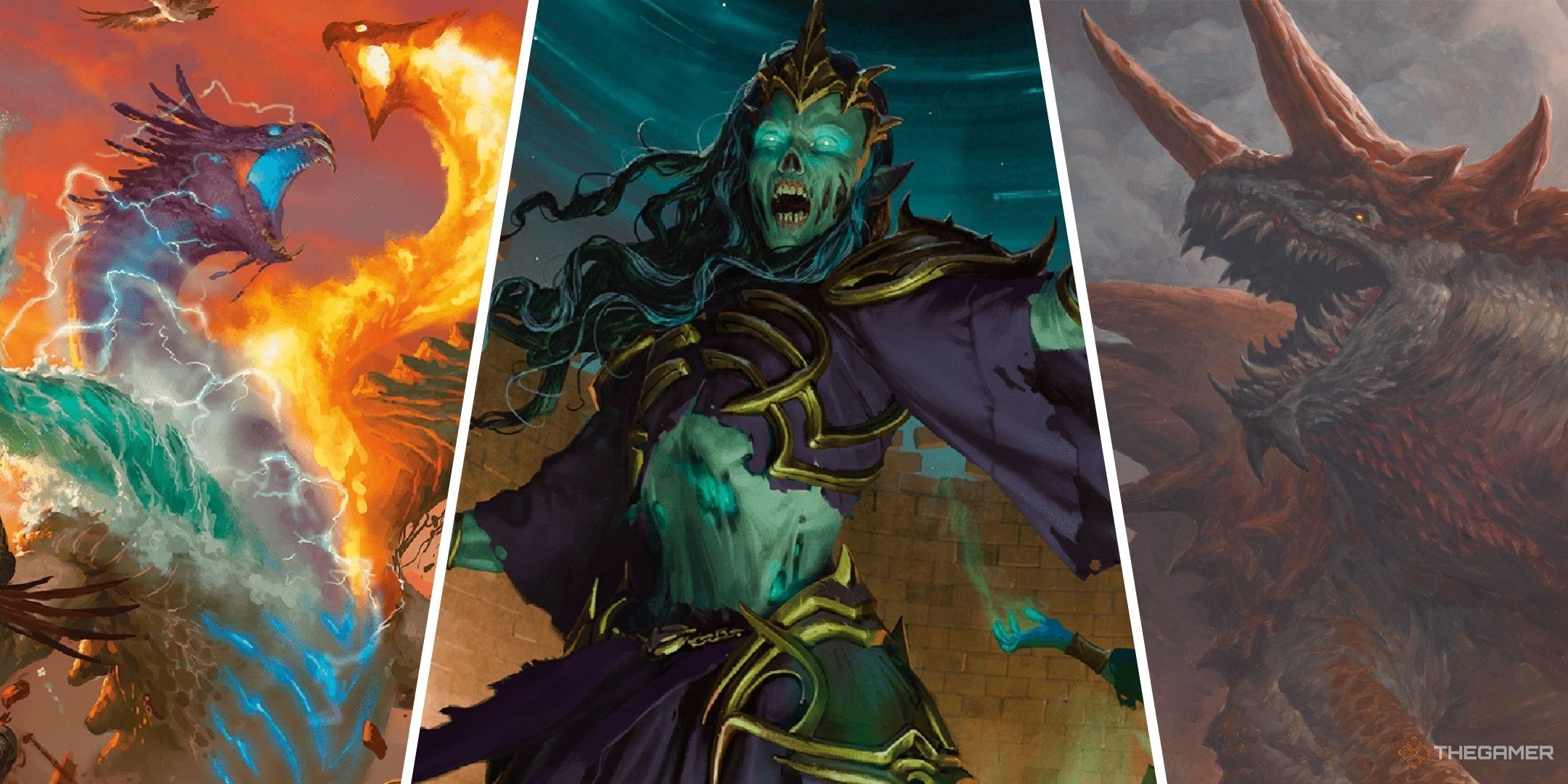
Relevant
Danjons & Dragon: Best 5e High Level Adventures, Rating
Don’t leave your high -level players. These 5E campaigns are very good to reach Level 20.
By allowing your players to take charge during competitions and give them time to discuss their next steps outside the game, you can really feel the game interactive. It also helps if you focus on describing the important aspects of every confrontation, from unique items in the room to a few months or sounds.
6
Describe the travel time
One of the most difficult things to get as a DM is slowing down the gameplay to give players a chance to describe their own actions or try to play a role in competitions. Although it may seem beneficial for players, it can really hurt the gameplay at the site of the boredom.
When the party is traveling along the road, moving between different points in the city, or setting a way out of a burden, easily describe the journey without having to stop between each new site or door. It also helps to ensure that your players know that if they want to try something, it is okay for you to interfere at any time.
5
The rules of entertainment
Perhaps the number one principle for any D&D game is that the table entertains anything, even the rules of physics. If the rules of jumping do not allow a bully to make a final effort to save his party member or turn the epic chase into a disappointing end, ignore or divert the rules with a dye roll.
There is no referee to make sure your game is on code and that every encounter is perfectly balanced. Although living within the principles established can be beneficial to be able to visit them successfully, the rules should always be broken when they are on the path to enjoying the table.
4
Changes in record rules
Although improving the new rules and ignoring the limits allows some of the best moments on the table, it may seem that when they are contradictory, the game is at stake or lacking any rule. If you allow a rule to use bonus action instead of an action through the house, it should be noted forward.
It is mostly to keep the game balanced and fair between most players and even the NPC, which you will consider when you are not following your rules. You can correct yourself or change the interpretation of a rule for any time, as long as everyone on the table is aware of it before coming into the middle of life or death encounters.
3
Set hard and soft limits
Before DMM with a group of players, you will need to understand what their limits are in terms of rollplay and scene elements. These limits prove what the players are playing with or will eventually ruin the game for them.

Relevant
Danjonz & Dragon: 7 modern points for experienced players
These points will help experienced D&D players get more than their sports.
It does not want to hurt innocent animals or observe some species that have been presented against harmful stereotypes. The soft limits are the things that are done carefully, and talk about the players in the game before they talk about it, and talk about what should not happen before the dice role is done.
Session Zero is a great time for this conversation, but sometimes it is better to set boundaries privately with players, as it may not be something they want jointly.
2
Rely on the interpretation of the rules of good faith
The rule of entertainment does not always allow players to customize, because you have to say “no” to break the game or go out of their skills. Only because the rules of the game can be technically translated so that unfair mechanics can be allowed, you should deny it.
An example of this is interpreting the words of a magic to try to get away with a stronger effect, such as trying to use a minor illusion to be invisible. You should make sure that the table knows that the rules have to be resolved in good faith rather than literally.
1
Share the spotlight
As a DM, you will almost certainly be more willing to engage in a favorite player or others, which may be biased to allow your characters to shine. Although some situations of specific characters are their moments. They say, as a result, you do not want to ignore other party members.
This includes not letting a player talk to all NPCs, sometimes including the NPC directly interacting with the role of a calm player. You also want to make sure that powerful magical items and expensive loots do not always move towards the same roles.
Sometimes, a problem will try to force the spotlight and take charge of every encounter. These issues are not solved in the game, but instead talking directly to this player. If the problem persists, they should be asked to leave the table or should not go back.

